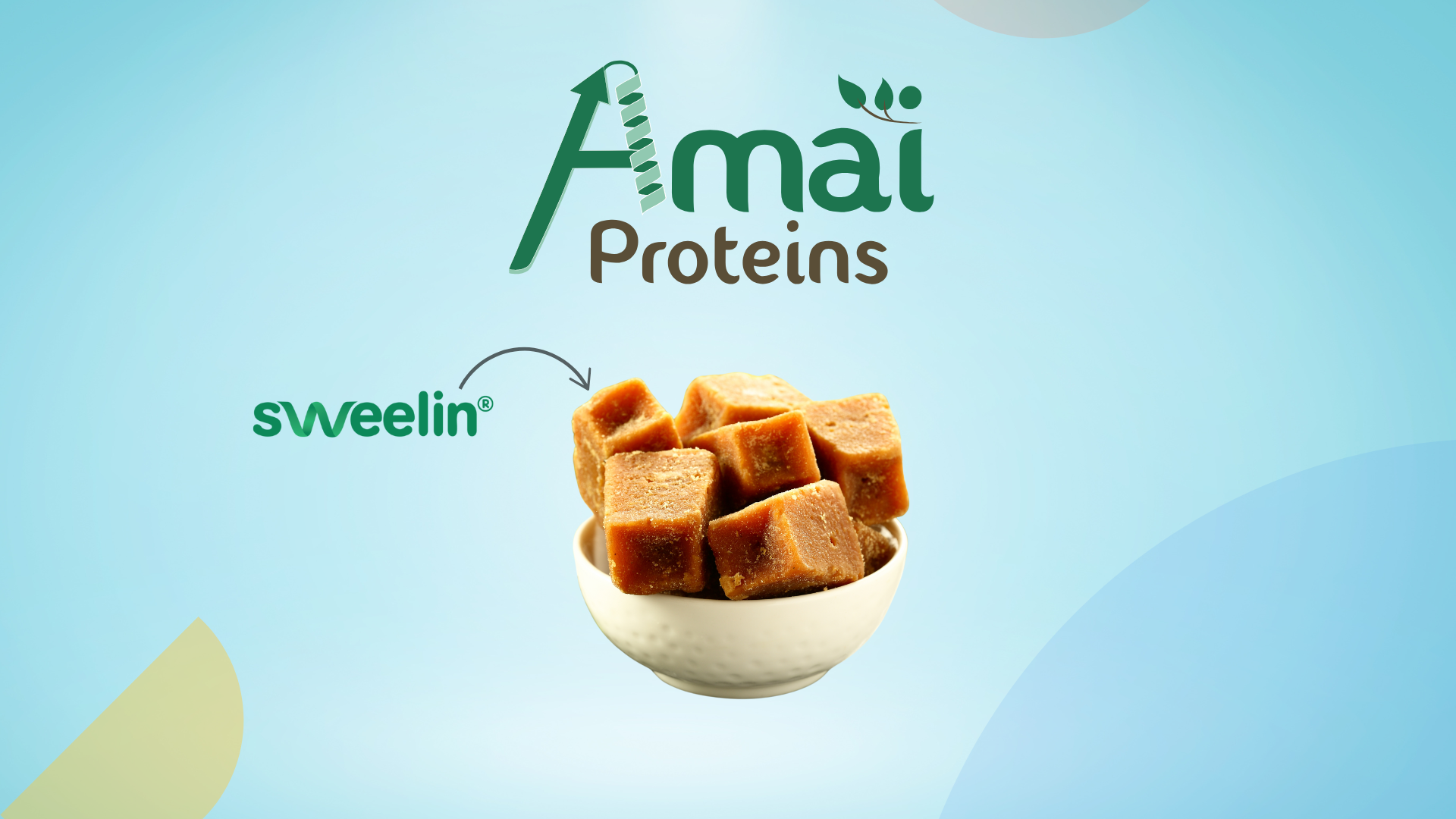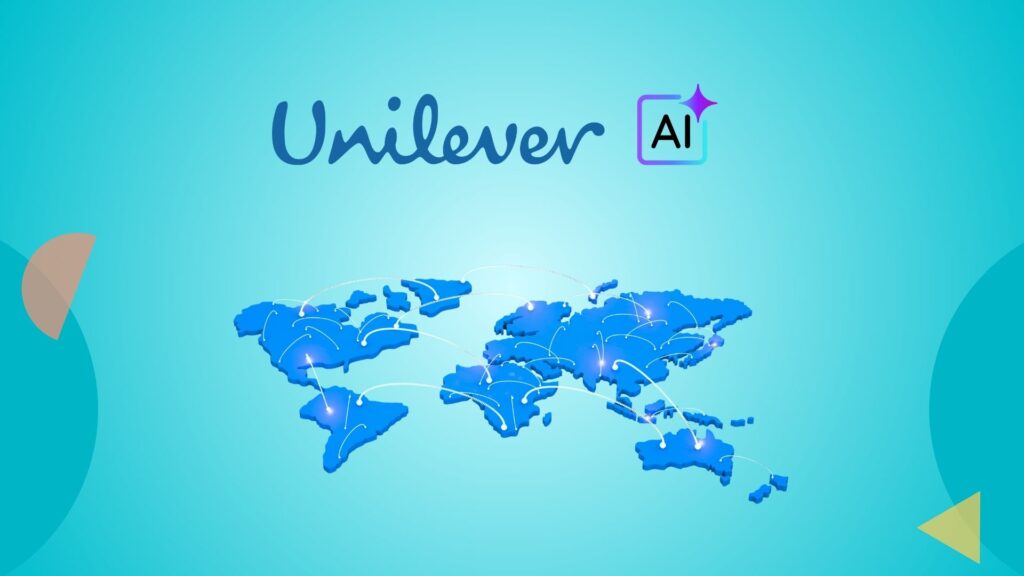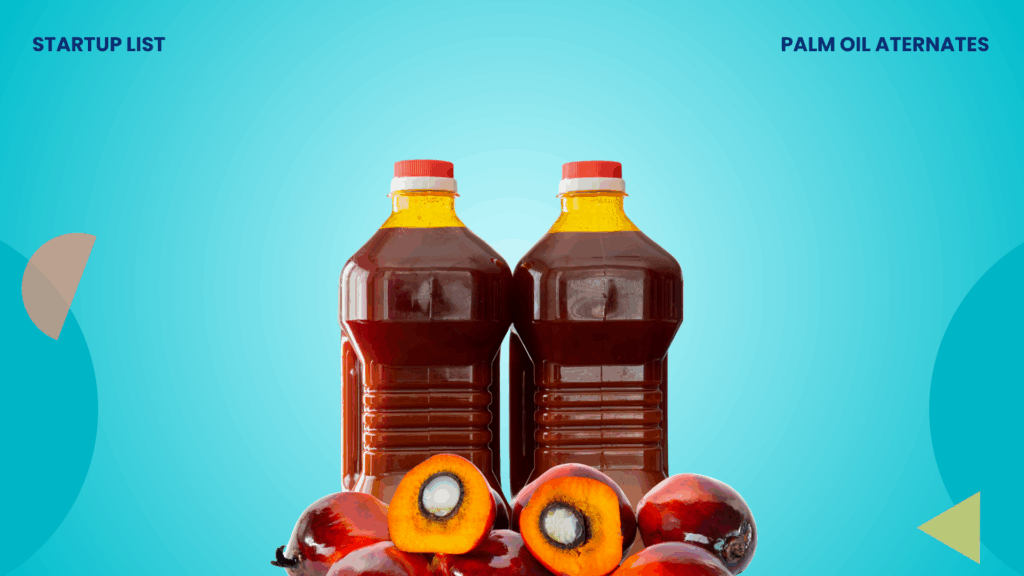Reducing sugar in food without sacrificing taste has been one of the toughest challenges for the food industry. Many sugar alternatives either don’t taste the same or fail to work well in recipes.
With over 74% of packaged foods containing added sugars, the global sugar reduction efforts have intensified. Yet, natural sweeteners like stevia and monk fruit often struggle to replicate sugar’s complete sensory profile. This leaves a noticeable gap in taste or texture.
Amai Proteins addresses these problems with their innovative sweet protein, Sweelin™. Designed to replace sugar in various food and beverage products, Sweelin™ reduces added sugar by 40-70% without compromising taste. Furthermore, due to its uncommon manufacturing process, Sweelin™ has a lower environmental impact than traditional sugar production.
GreyB connected with Dr. Ilan Samish, the company’s founder, to analyze the feasibility and scalability of Amai’s solution. In this exclusive discussion, Dr. Samish explains how Amai’s sweet proteins solve long-standing technical barriers and transform the sugar reduction landscape.
This interview is part of GreyB’s Scouted series. In this series, we spotlight innovative startups and speak to their founders about how their solutions can be implemented to solve critical challenges and comply with industry and sustainability regulations. You can find all those interviews here.
In addition to Sweelin™, GreyB also analyzed some FDA-approved sugar reduction solutions that can be used in 2025.
“Today, 90% of the sweetener market is controlled by sugar. We’re offering a new category of sweetener that allows significant sugar reduction without compromising taste, health, cost, or sustainability.”
– Dr. Ilan Samish

Dr. Ilan Samish is the CEO of Amai Proteins. He has a professional history in protein research. Before founding Amai Proteins in 2016, he co-founded 3Dsig Structural Bioinformatics & Computational Biophysics. His extensive computational protein design and microbial technology background helped him develop Amai Proteins’ sweet protein, Sweelin™.
Overview: Amai Proteins’ Sweelin™ reduces added sugar by upto 70%
Amai Proteins is revolutionizing the food industry with its innovative sweet protein technology. The company has developed a protein-based sweetener called Swillin. This protein is 3,000 times sweeter than regular sugar, making it a cost-effective and sustainable alternative. Unlike traditional sweeteners, Amai’s solution is digested quickly by the body into amino acids. This eliminates common side effects associated with artificial sweeteners. The company has recently secured regulatory approvals in the US. It is expanding globally, targeting markets with high diabetes rates and regions affected by sugar taxes.
Watch the full conversation here.
Here are the highlights from the conversation:
What is your technology, and how does it differ from existing sweeteners?
Ilan: Our technology is based on 100% protein, specifically designed to be hyper-sweet while maintaining a natural composition. Unlike artificial or natural sweeteners, our protein is quickly broken down by the body into amino acids after consumption. We recently completed the world’s first clinical trial. It showed that our sweetener has zero effect on blood glucose and insulin levels, even at high concentrations. This is particularly significant given that the World Health Organization warns about artificial and natural high-intensity sweeteners. This includes popular options like stevia and aspartame.
How do you address production scalability and regulatory concerns?
Ilan: We produce our protein through precision fermentation using yeast in our facilities in Bangalore, India. We’re planning to expand to Brazil and the UAE. From a regulatory standpoint, our product has received approval from the United States for self-affirmed GRAS and FEMA GRAS. We expect FDA approval in 2025. Since our final product contains no DNA or genetically modified components, it doesn’t require bioengineered labeling. This makes it easier to integrate into existing product lines.
What are your global expansion plans and target markets?
Ilan: Our approach is highly global, with patent protection across 53 countries. We’re particularly focused on Southeast Asia, representing 60% of the diabetic market. Countries like Malaysia and the Philippines are larger markets than the US. We’re also targeting countries where diabetes rates are expected to double. Our initial market entry will be in the United States and Singapore, followed by Brazil and other Latin American countries. We’re especially interested in the sugar-sweetened beverage market, which faces increasing sugar taxes worldwide.
What challenges do you face in bringing this technology to market?
Ilan: The main challenges we face are threefold. First, regulatory approvals take considerable time across different countries. Second, we must establish large-scale production facilities with food-grade certifications, which requires significant capital investment. We’re raising $100 million for this purpose. Third, market education is crucial as we’re introducing a new category of sweeteners. Some large companies are conservative in adopting new technologies. We must help them understand the changing market dynamics around sugar consumption and regulations. We’re addressing these challenges by working with large and small companies. We provide formulation support and help with product development through joint development agreements.
Meet our Interviewer – Shikhar Sahni, Sr. VP at GreyB

Shikhar Sahni is an experienced analyst and strategy expert who leads GreyB’s operations. With 16 years of experience working with innovation managers and leaders, Shikhar stays current with the ever-evolving tech landscape. His leadership and problem-solving skills make him a valuable resource in R&D and IP research environments.
To learn more about this startup and validate the effectiveness of its technologies, contact our scouting expert using the form below or explore GreyB’s startup scouting services.








